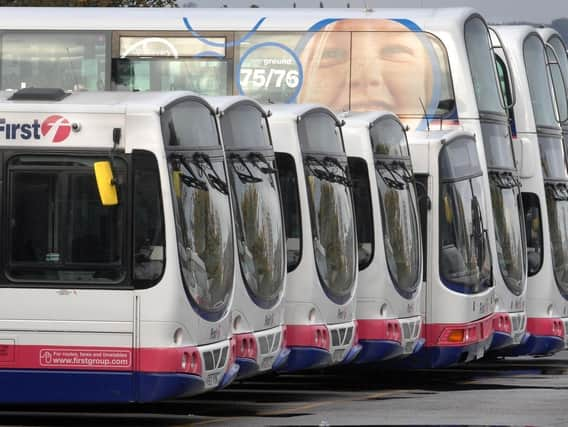Sheffield City Region leaders consider taking buses back into public ownership


The call was repeated following a in-depth review of the state of bus services in South Yorkshire carried out by Sheffield MP Clive Betts back in 2020 who said franchising or public ownership ‘should be seriously considered’.
More recently, Greater Manchester mayor Andy Burnham announced the area would bring in a franchise model with full control of routes, services and prices run by the authority. It is expected to cost £135 million.
Advertisement
Hide AdAdvertisement
Hide AdIn Mr Betts’s review, Sheffield City Region bosses should procure the necessary expertise to “financially and legally investigate” the process of franchising right away.
But the possibility of creating a municipal bus company – owned and run by the Sheffield City Region – should come no more than five years after the creation of a new South Yorkshire-wide Enhanced Partnership.
Franchising should be considered after around three years by June 2023.
Leaders from councils in Doncaster, Sheffield, Barnsley and Rotherham said bus services in the region had been ‘devastated since 2010’ and funding cut by nearly half.
Advertisement
Hide AdAdvertisement
Hide AdIn a joint statement from Mayor Dan Jarvis and his Labour colleagues leading South Yorkshire’s councils, they said public ownership of buses is ‘on the table’.
“Routes have been reduced. Fares have gone up, and the quality of buses has declined. It’s unacceptable,” they said.
“That’s why we’re taking matters into our own hands. In South Yorkshire, we’re supporting young people by extending concessionary travel fares for those aged 21 and below. We’re also investing a further £3.2m in our bus network. Money that will go on our first electric buses, upgrading bus stops, and installing electronic displays.
“Looking to the longer term, we’re urgently working on a plan to ensure cheap fares, improved services and better integration with other transport, as well as conversion to zero-emissions vehicles – it’s the practical detail of what good looks like, and how to get us there quickly.
Advertisement
Hide AdAdvertisement
Hide Ad“That includes ownership structures. We have to make sure franchising works for us, but it is on the table. Our bottom line is we need a structure that lets us build the service we need.
“We’re determined to build a stronger, greener and fairer economy – and a sustainable, accessible, affordable and reliable bus network is integral to making that happen.”
*
In these confusing and worrying times, local journalism is more vital than ever. Thanks to everyone who helps us ask the questions that matter by taking out a digital subscription or buying a paper. We stand together. Nancy Fielder, editor.
Comment Guidelines
National World encourages reader discussion on our stories. User feedback, insights and back-and-forth exchanges add a rich layer of context to reporting. Please review our Community Guidelines before commenting.